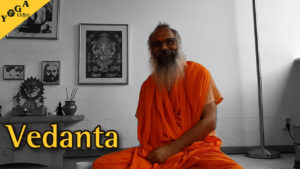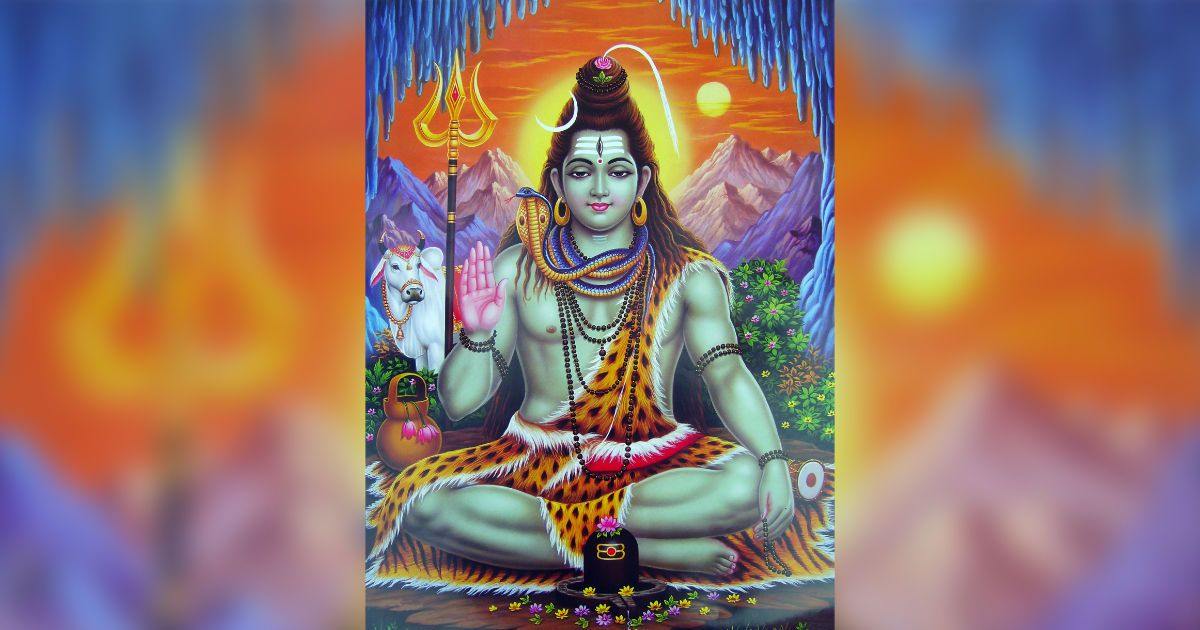You create karma when you act with yourself in mind, with your personal desires and motivation. When you act, not for yourself but as a service, the mind is freed, and you experience the benefits of karma yoga. Continue reading
Tag Archives: karma yoga
297 – Who is the greatest Karma Yogi?
Once upon a time, Sri Krishna was wandering in the forest with his friends. It was a very hot and sunny day and they were all drained of energy. There was a grove of trees beckoning them. The leaves were dark green and the branches were dense. Not a ray of light was coming through this cover of greenery. It was dark and cool. They took shelter in this space. Continue reading
294 – How to live our life?
It is a question which is dominant in our mind and sometimes we never find the answer? It leads to dissatisfaction and frustration. The answer is within us. We have to know how to find it. It is not easy and the key to this lock is Yoga. Yoga means balance between the body and mind. Continue reading
263 – Shiva Yoga
The Yoga described in Pashupata Tantra, is neither hatha yoga nor raja yoga, it is a yoga named by Swami Niranjanananda Saraswati as Shiva Yoga.
Shivenasaha yogah: Shiv yogah “The teachings of yoga as associated with Shiva will be called Shiva Yoga.” Shiva Yoga is the most important as it has four parts: hatha yoga, raja yoga, bhakti yoga and karma yoga. Continue reading
253 – Why am I unhappy?
What can be the answer for my unhappiness? Is it my wrong attitude about my life in general? Is it about my kids? Is it about my childhood? Is it about my relationships, my job or my behavior? Am I too humble, too arrogant, or do I feel that I am too superior or inferior? Continue reading
203 – Meditation and Karma Yoga Combo
Meditation is such a powerful word, and its implications are that if we meditate daily, we are very advanced beings. I am using the exact description of the Hindi word ‘pahucha hua’ (a holy man), which is applied to a person who does daily sadhana along with the rituals, which reinforce the image. As a child I have heard sannyasins described so. I imagined that they had reached a distant destination as this word also means reaching. Continue reading
191 – How can we exhaust our Karmas
It is an eternal question. It is so fashionable to attribute all our problems to our karma, we blame our karma for every sadness and misfortune in our life. When Swami Satyanananda met Swami Sivananda the first time in1943, he told him to exhaust his karmas. Continue reading
087 – What is the purpose of Karma Yoga
The objective of Karma Yoga is to create a stable base for the mind. In meditation, the mind has to remain constantly on one object. However if one practices without purifying the mind, then feelings of tamasa (laziness, self-indulgence and self-absorption) dominate. Karma Yoga is an essential and vital part of one’s spiritual growth, because one is governed by one’s passions and desires. If one’s desires were eliminated one’s development would be obstructed. Desires must not be suppressed. One has to fulfil them or realize their emptiness. By curbing one’s desire, one is stunting one’s growth. Continue reading
James Swartz – Action, renunciation and indifference to objects – Talk 9
Actions won’t remove ignorance. Actions and ignorance are not
in conflict. Knowledge will remove ignorance. By sadhana you
don’t remove the basic ignorance: I am the doer! Moksha is the
negation of the doer. Actions don’t give lasting happiness.
Verse 4: Supreme love of your self. The immortality benefit. All
your worries stop, no tension anymore. The instinct to do
something to survive is produced by ignorance. Its a beautiful
world. Verses 5-7: Everything is perfect. Teaching is perfect. No
need for a new teaching. It does not generate desires. Turning
everything over to the Lord. You are like a baby. Verse 8: Spirit
of renunciation. You hurt yourself with the fear thought. Its good
to get rid of things. Renunciation of worldy and spiritual duties.
The wonderful power of desire to make the lifes of people better.
Desire is your life force. Verse 9: For renunciate objects
are value neutral because they are inert, matter. Value is
projected of conscious beings on inert objects. You only
experience the thought of an object. The location of objects
teaching. Inference versus direct perception. The value of an
object is projected by your conditioning depending on your
values.
More: Vedanta Seminars.
More on: Vedanta.
Learn more about: Yoga Vidya.
You can sign up for: our online seminars.
You can also support us by: donating.
Podcast: Play in new window | Download
Subscribe: RSS
James Swartz – Karma Yoga, Teachers and Scriptures – Talk 6
Karma yoga is bhakti yoga. Swami Vivekananda, Freud, 
consequences of technology. Psychological designation in
Vedanta appeared. Multipath confusion. Better to integrate all
parts of the psyche. All stages of devotion are necessary, must
be practised. For karma yoga you need a guru and the
scripture. Only a mature person can surrender to Isvara.
Mantra “sadāśiva samārambhāṁ
śaṅkarācāryamadhyamām…” The self is the guru. Self is
beyond perception and inference. You need a guru because
the tendency for self-deception is immense. Dead gurus don’t
reveal your self-deceptions. You should manage your own life
based on the knowledge. Desire produces anger, depression
and delusion. Karma yoga as right action: dharmic lifestyle is
necessary. 5 daily practices: worship teacher, worship of
ancestors (tvam eva mātā…), worship deity, service to
humanity, protect environment. Desire hides your self from
you. Karma yoga turns an extroverted and subjective mind
into an introverted and objective mind. Inner child becomes an
inner adult. Relationship of guru and disciple: Krsna and
Arjuna in the Bhagavad Gita. Sakhya bhava. Karma yoga is an
appropriate use of your free will. Described in chapters 1-6 of
the Bhagavad Gita.
More: Vedanta Seminars.
More on: Vedanta.
Learn more about: Yoga Vidya.
You can sign up for: our online seminars.
You can also support us by: donating.
Podcast: Play in new window | Download
Subscribe: RSS
James Swartz – Karma and Karma Yoga – Talk 5
3. Formal devotion. What is karma? Prarabdha, sanchita and 
agami karma. Karma is similar to a bank account. 3
possibilities: add karma, exhaust karma or stay the same.
People with little karma become sannyasi. Karma Yoga means
how to relate to your karma. Neutralise your karma to have a
steady mind. Gunas, mind and karma. Deities are Vedas in
code. Rishis show you who Isvara is. The love for myself
depends on whether I am handling the karma properly. You
are the witness of karma. The I has no karma. All karmas are
created by Isvara. Isvara or God: creator, upholder or dharma,
giver of results. Isvara is in charge of the results. The principle
to hand out results to jivas are the needs of the total. Isvaras
versus jivas mind. Karma is hard to understand: I want results
and I am not sure if I get it. Karma Yoga is acting like an
enlightened person: offering the actions as a worship to Isvara
as the giver of results. Isvara gave you your life as a gift.
Karma Yoga is love of God. This attitude during action reduces
karma. Giving instead of grabbing. Your whole life is an altar.
It is normal to do good things with love. Accept the good and
bad results with an attitude of gratitude.
More: Vedanta Seminars.
More on: Vedanta.
Learn more about: Yoga Vidya.
You can sign up for: our online seminars.
You can also support us by: donating.
Podcast: Play in new window | Download
Subscribe: RSS
James Swartz – Love, Ishvara and Informal Devotion to God – Talk 4
By reading Vedanta texts it is easy to misinterpret them.
Ignorance and knowledge are mixed  up. Teaching makes
up. Teaching makes
difference between ignorance and knowledge clear. Live your
life based on knowledge not on emotions. Isvara and action.
What is real? You see reality on the basis of your experiences.
Reflecting media. Three gunas and the mind. 2. Informal
devotion. Personal deity, ishta devata. Religion. Influence and
judgements of the family. God is a helpful concept in the mind.
God doesn’t judge. Dead gurus don’t judge. Living gurus make
you grow. In informal devotion you bring God down to your
level. Vedanta lifts you up to Gods level. Karma Yoga as the
beginning stage.
More: Vedanta Seminars.
More on: Vedanta.
Learn more about: Yoga Vidya.
You can sign up for: our online seminars.
You can also support us by: donating.
Podcast: Play in new window | Download
Subscribe: RSS
Karma Yoga and Devotion – Vedanta, Self Growth and Self Discovery with Swami Nityabodhananda
Talk 2 of Swami Nityabodhananda at Yoga Vidya Center in Cologne, Sept 2019. 
Subject: Karma Yoga and results of actions. Prasadam. Attitude of Devotion to Ishvara. Roles in life. Vers 2:51 Bhagavad Gita. Clarity of purpose. Atma and body. Substance and form.
Visit Yoga Vidya for more inspiring talks and spiritual community.
One gramm of praxis is more than tons of theory. Practice Yoga.
Podcast: Play in new window | Download
Subscribe: RSS
Intuition of Reality – Vedanta Talk 6 by Ira Schepetin
 Prakriti and Gunas. Bhagavad Gita Chapter 7. Types of Devotees. Karma Yoga. Stages of Karma Yoga. Chapter 12, 8-20 Bhagavad Gita.
Prakriti and Gunas. Bhagavad Gita Chapter 7. Types of Devotees. Karma Yoga. Stages of Karma Yoga. Chapter 12, 8-20 Bhagavad Gita.
More Vedanta Seminars you will find here.
More on Vedanta you will find here.
English Community, Blog, Seminars you will find here.
Podcast: Play in new window | Download
Subscribe: RSS
Yoga Vidya – Europe’s leading Yoga Retreat Centre
Yoga Vidya is a nonprofit organization whose aim is to spread the knowledge (vidya) of holistic Yoga. Founded by Sukadev Bretz in 1992, Yoga Vidya now runs 4 ashrams, 100 Yoga centres in various cities and has trained more than 17.000 top-quality yoga teachers. This makes us Europe’s leading and largest yoga educational organization. We teach in the tradition of Swami Sivananda, welcoming people of all spiritual paths and traditions of yoga.
If you are interested in our English Seminars, click here.
E-Book PDF: Open in New Window | Download
Subscribe: RSS










